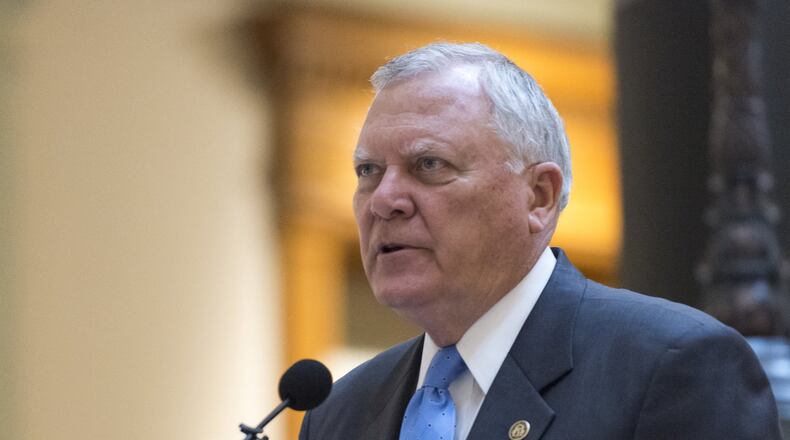Last year, Gov. Nathan Deal wrapped himself in broad constitutional and jurisprudential principles in vetoing the legislature’s controversial “Campus Carry” bill. The governor explained that our nation’s founding fathers recognized that guns should not be allowed on college campuses. He cited this historical fact as evidence that “should not only dispel any vestige of Constitutional privilege but should illustrate that having college campuses free of weapons has great historical precedent.”
But last week, with a stroke of his pen, Deal reversed course and swept away two centuries of common-sense approach to guns on campuses. He signed into law a Campus Carry bill that virtually nobody in Georgia’s higher education community sought or endorsed, and which many actively opposed.
As a member of Outcry: Interfaith Voices Against Gun Violence, a group of diverse religious leaders, I am deeply disappointed in the governor’s decision to put thousands of students in harm’s way. As a Christian, I believe this new law raises fundamental moral questions about the kind of community we are shaping through a public policy of increased gun availability.
Everyday, college students are embroiled in life transitions. They are under enormous emotional stress. Some experiment with alcohol and drugs. Others have suicidal thoughts and they make bad decisions. A split-second decision made by an adolescent brain can ruin or end that young person’s life or the lives of those around them. Unnecessarily increasing the availability of guns in this high-stress environment is inconsistent with our moral obligation to provide sanctuaries of learning to cultivate our state’s future leaders.
The law as signed does not allow guns in dormitories or other campus housing and does not allow them in other specified locations. But who will enforce these rules and how? Are badly strapped and underfunded campus police now going to be charged with conducting searches of dormitories and other buildings to find violations? There is currently no infrastructure to ensure that guns will stay only in designated areas, and the safety of thousands could therefore be compromised.
Neither the governor nor state lawmakers are properly equipped to dictate how guns on campuses should be managed. We have a statewide Board of Regents, and each campus has professional educators who are charged with the responsibility to balance the many needs of college students and the university community as a whole.
But beyond these practical questions, what moral lessons are we teaching our young adults about the way we view our neighbors, about appropriate ways to resolve disagreements, or about the source of our true security? Our faith teaches us to honor the sacred worth of each person as a child of God, to pursue peace and nonviolent means of resolving disputes, and to trust God — and not guns — as the source of our true security. This bill invites us to view our neighbors with fear rather than love and to rely on violence.
Gov. Deal has defended his change from last year’s decision by suggesting that criminals “target” students traveling to and from campus, because the assailants know they cannot be armed. We must ask what new empirical evidence supports this, since last year Gov. Deal rejected this same rationale, stating that “If the intent of [last year’s bill] is to increase safety of students on college campuses, it is highly questionable that such would be the result.”
The gun lobby has enormous power in our Legislature. Last year, Gov. Deal showed courage in vetoing the campus carry bill and showed leadership in carefully explaining why doing so made both legal and moral sense. This year, the principles underscoring that decision collapsed under the political realities of the gun lobby. Our colleges and universities, and especially our young adults, will bear the cost of this lack of moral courage.
About the Author
Keep Reading
The Latest
Featured


